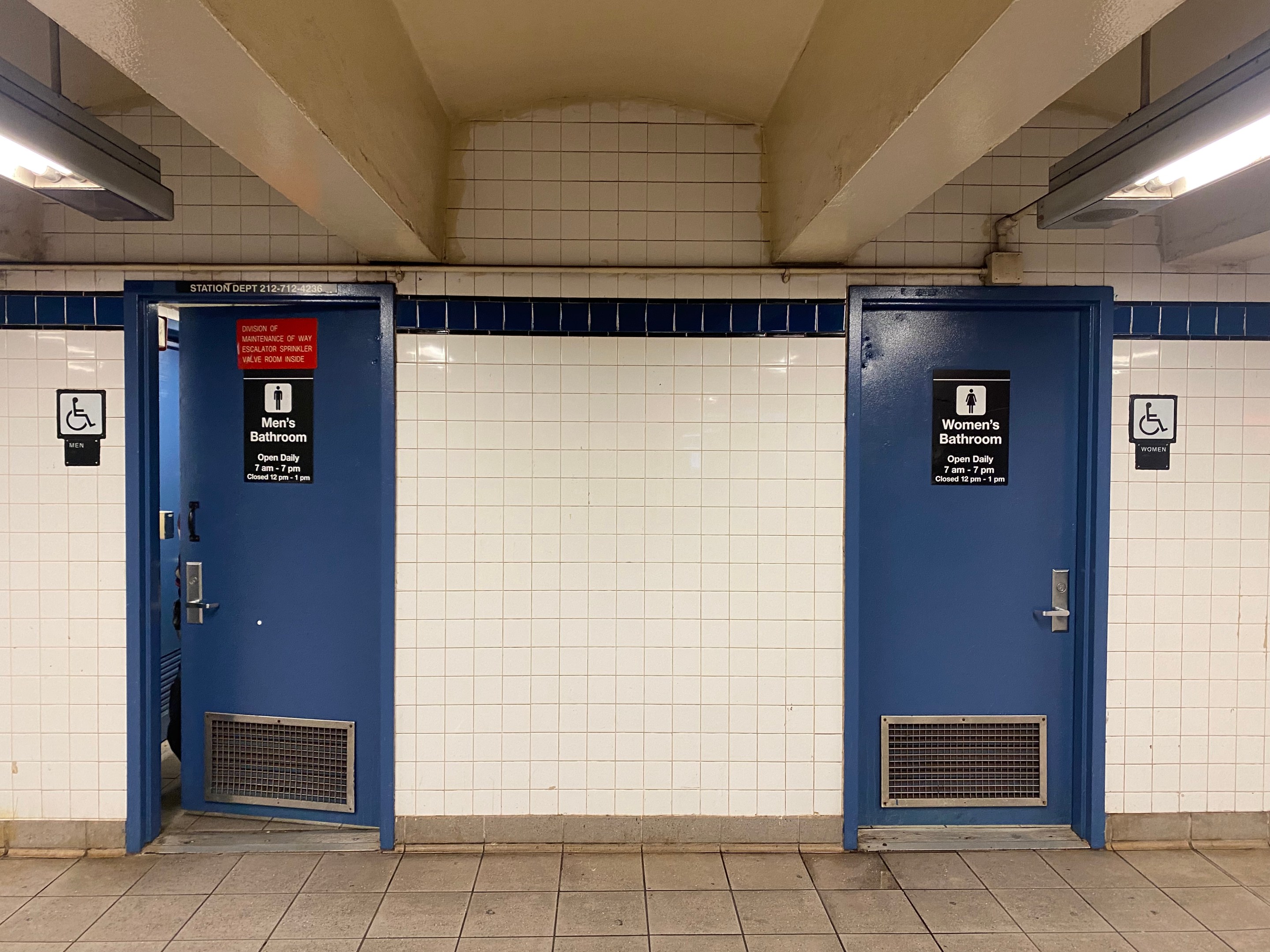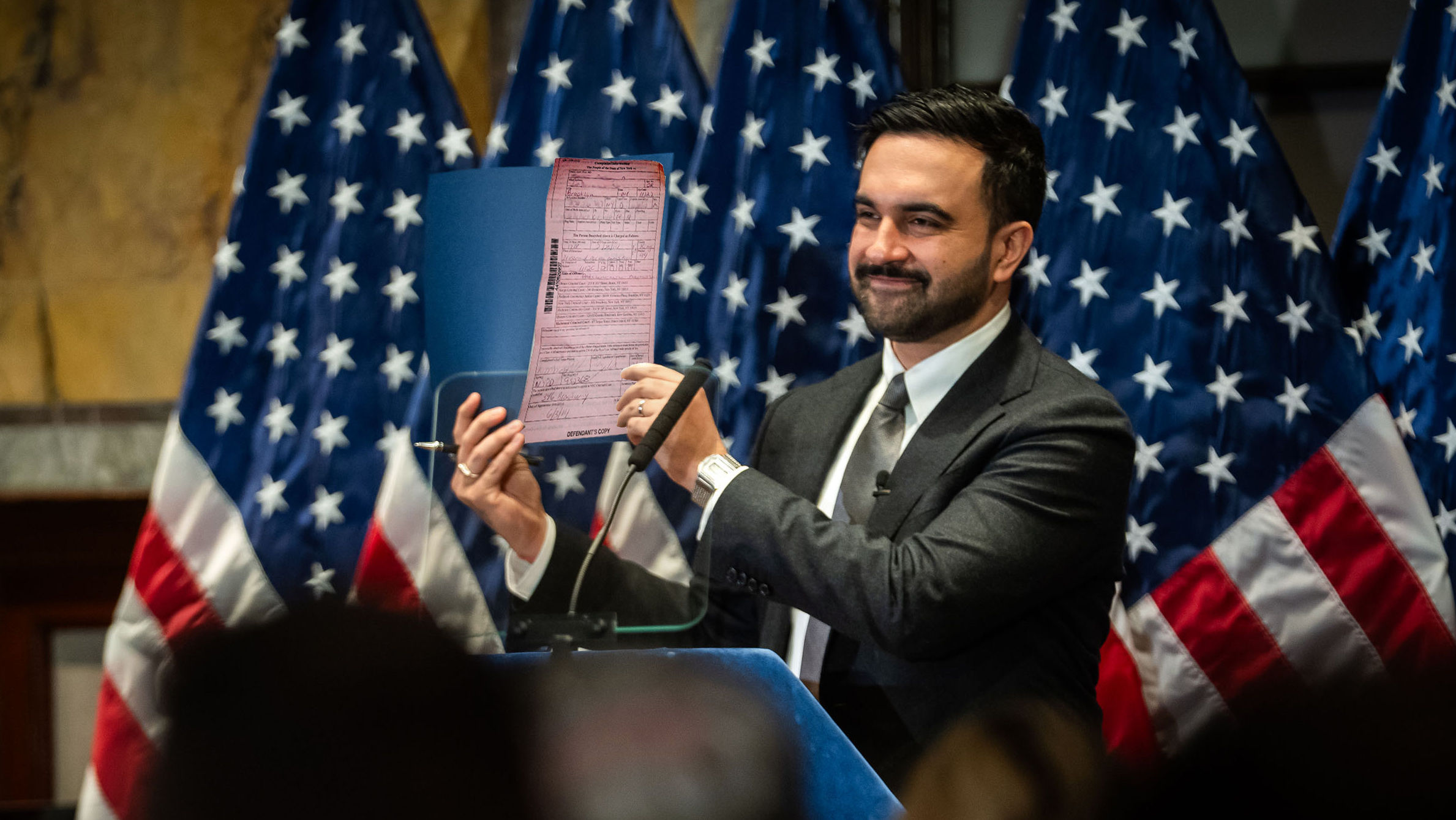The MTA has hired subway station maintenance staff back to above pre-Covid levels, but the agency still has no schedule to reopen the vast majority of the bathrooms that were shuttered during the pandemic.
The agency's New York City Transit division reopened some bathrooms at the beginning of the year and has recently expanded station cleaning efforts, but officials currently plan to open just 42 of the 133 restrooms that closed, or less than one-third, despite having nearly 10 percent more maintenance workers on staff than in 2019.
Transit leaders long refused to unlock their public bathroom facilities during the health crisis, even as other public toilets remained accessible or returned much sooner — such as those managed by the Parks Department, which has more than 10 times as many bathrooms.
The MTA finally brought back 18 bathrooms at nine stations in January, and plans to reopen at another 24 toilets in 12 stations by May 2, restoring about 32 percent of all its pre-pandemic facilities.
As of February, the agency had 3,588 staff tasked with maintaining the stations — including the toilets — according to the latest MTA board documents, up 8.5 percent from the 3,307 workers logged in February 2019.
Advocates said the transit agency should prioritize restroom restoration.
"Subway bathrooms are not an afterthought for riders, they’re part of operating a decent, humane, and welcoming transit system," said Danny Pearlstein of Riders Alliance.
Maintenance staffing resumed to 2019 levels as early as summer of 2021, but the MTA diverted employees and additional hired contractors to mop trains and stations daily as part of Covid protocols.
Transit honchos at times cited understaffing for not reopening the bathrooms, but also raised concerns of vandalism, drug use, and homeless New Yorkers setting up camp inside.
The loo lockdown left fewer options for relief for the tens of thousands of unhoused people in a city that already doesn't have enough public bathrooms, and homelessness advocates and pols called on the MTA to unlock the facilities.
Authority CEO Janno Lieber told state Senators during a hearing last year giving people a place to go was not a priority, adding "we are a transportation agency."
Other public bathrooms in the city never closed or reopened much faster, including at other MTA-run facilities.
The city Parks Department operates about 1,400 bathrooms on its properties that largely stayed open throughout the pandemic, getting even more use than usual as pent-up New Yorkers sought out open spaces en masse.
The only closures were at playgrounds, which former Governor Andrew Cuomo ordered shut down for a few months in early 2020 aiming to stop Covid's spread.
The New York, Brooklyn, and Queens public library systems reopened their bathrooms as each branch returned from grab-and-go to full service, and all of the city's nearly 220 book-lending outposts were back by July of 2021.
Even the MTA unlocked its own stalls in 2021 at commuter rail hubs like Penn Station, Atlantic Terminal in Brooklyn, and Jamaica in Queens — despite Long Island Rail Road and Metro-North riders already having access to bathrooms on board trains.
For the remaining 91 bathrooms across 48 subway stations, the agency does not have a timeline on bringing them back, but will evaluate where it's appropriate, according to officials.
MTA officials noted that the cleaners have to take care of all the 11 million square feet of public-facing space — about half the size of Prospect Park — across the city's 472 subway stations.
The subway system used to boast a whopping 1,676 working toilets at its peak in 1940, more than 10 times what's available today, but in the 1980s, the MTA closed three-quarters of its WCs to the public citing safety concerns and low use, and converted some into employee facilities.
NYC Transit President Richard Davey credited a hiring push of 800 new cleaners last year for allowing him to reopen some subway station wash closets. The returning facilities also got new fixtures and lighting, and a fresh paint job. The new staff has spruced up 21 stations as part of Davey's "Re-NEW-vation" cleaning program that started last summer.
"Between the 21 stations already improved through the Re-NEW-vation program, the staffing up of station and car cleaners, and dramatic improvements to the amount and quality of cleaning throughout stations, including the reopening of cleaner and revitalized bathrooms in 21 stations by May 2, New York City Transit is committed to providing customers a cleaner station environment," said MTA spokesman Sean Butler in a statement.






